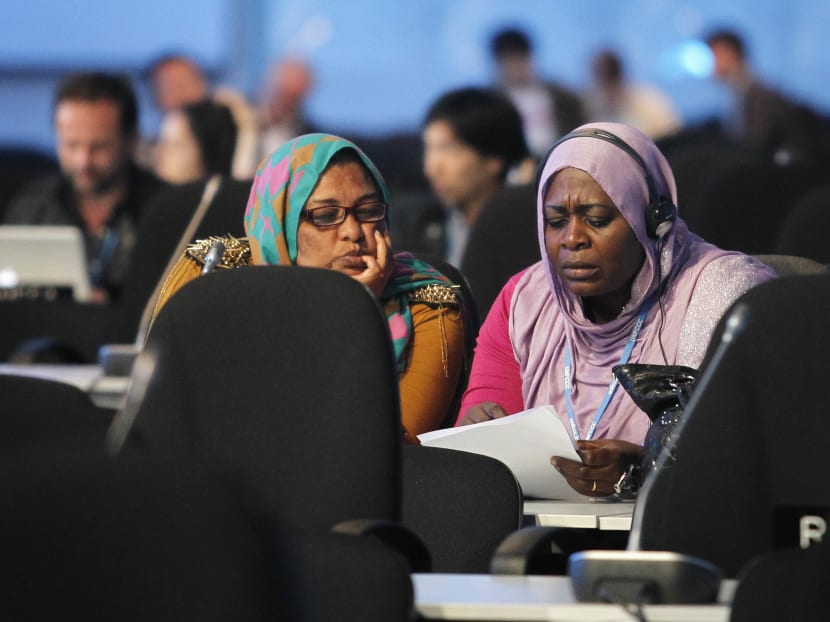UN climate talks deadlock on rift between rich and poor nations
LIMA — Negotiators at a United Nations climate conference in Peru shuttled behind closed doors, seeking to restart talks that ground to a halt over how rich and poor nations would share the burden of fighting global warming.

Delegates talk to each other during a plenary session of the U.N. Climate Change Conference COP 20 in Lima December 13, 2014. Photo: Reuters
LIMA — Negotiators at a United Nations climate conference in Peru shuttled behind closed doors, seeking to restart talks that ground to a halt over how rich and poor nations would share the burden of fighting global warming.
Envoys from the US, China, Europe and other countries held private meetings as they sought language that could win a consensus in negotiations that were supposed to wrap up yesterday (Dec 14) in Lima. Hundreds of delegates were left waiting on the makeshift campus next to Lima’s Army headquarters, waiting for signs of a compromise.
The delegates from 190 countries were attempting to lay the foundation for a global agreement in Paris next year. The two-week old talks stalled this morning (Dec 14) as developing nations revolted against a proposed text that they said placed too much of a burden on them, as opposed to industrialised nations whose fossil-fuel emissions caused most of the warming.
“We bent and we bent,” Malaysia’s representative, Mr Gurdial Singh Nijar, said during a speech to the other nations. “We can be flexible, but we cannot bend flexibility to a breaking point.”
Developing nations also objected to the removal of language in the proposed agreement that would have rich nations pay them for damages attributed to rising seas, droughts and other effects of climate change.
The US envoy to the talks, Mr Todd Stern, said all sides had made compromises. The impasse risked scuttling any hope for an agreement to control greenhouse gas emissions, he said.
“Failing to produce the decision before us will be seen as a major breakdown and will deal a serious blow,” Mr Stern told his fellow delegates. “All that we have achieved this far will be at risk. All that we hope to achieve will be at risk as well.”
The annual climate meetings have run over their deadlines in the past. Still, the Lima talks were expected to be a relatively easy decision on technical language ahead of the more contentious Paris meeting.
“The question is whether this is a speed bump or a roadblock on the way to Paris,” Mr Alden Meyer, who has been following the talks for two decades for the Union of Concerned Scientists in Washington, said in Lima. “It’s not going to be what people expected.” BLOOMBERG






